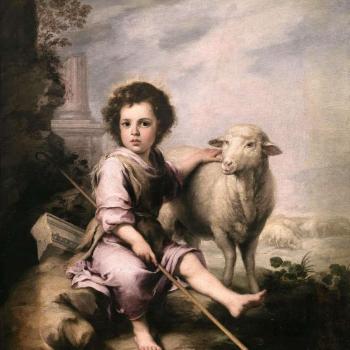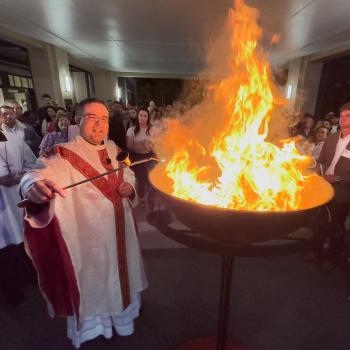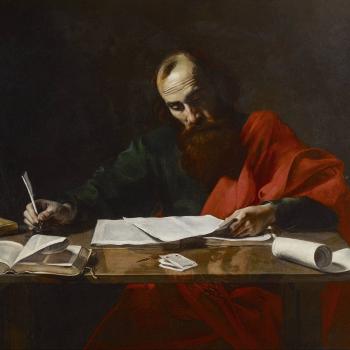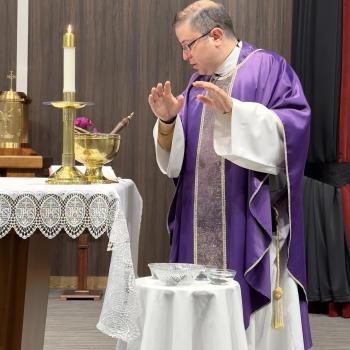What did this mean?
I was happy to be home, but only the Lord knew the blessings and challenges that lay ahead.
I was excited about serving the local Church that saw me grow and nourished my faith. Especially as an immigrant myself, I wanted for the Church to do and to be what she had been for my family when I was a child growing up here in Augusta. I wanted to make true the words of Saint John Paul II, that all families of migrants ought to find a homeland everywhere in the Church.
I knew there would be challenges, and there have been many in my time here, yet with God’s grace and by working diligently and assertively, I feel satisfied at having given back of my own efforts, my own time, my own being, to the Catholic Church here in Augusta, the church that has given me so much.
Times flies, two years do not seem like enough time, yet time has not passed without much work: 151 baptisms, 19 couples prepared for marriage, 12 of them which I married here at the parish, 648 Masses celebrated, 27 adults prepared to receive the sacraments, countless confessions, visits to hospitals, funerals, prison visits, two health fairs at Saint Nicholas with over 200 patients, meetings with Goodwill and the Augusta Partnership for Children, dealing with the deportation of parishioners, emergencies, phone calls, immigration assistance, YMCA programs, food sales, going to court, Guadalupe celebrations, retreats, preaching, meetings, holy hours, spiritual direction, teaching etc.
The work of the priest is never finished. It is never ending just as the depths of the mystery of God Himself.
The prayer often attributed to the murdered Archbishop Romero of San Salvador reminds us that:
“The kingdom is not only beyond our efforts, it is even beyond our vision. We accomplish in our lifetime only a tiny fraction of the magnificent enterprise that is God’s work. Nothing we do is complete, which is a way of saying that the Kingdom always lies beyond us.”
The prayer concludes: “We may never see the end results [of our efforts], but that is the difference between the master builder and the worker. We are workers, not master builders; ministers, not messiahs. We are prophets of a future not our own.”
The work of the priest is never finished or complete because the work of the Church is never finished or complete.
The greatest work of the priest is to draw all people into the mystery of God, a God who eternally exists in relation. Father, Son and Holy Spirit eternally relate to each other, three persons in one God, and he invites us to enter into that relationship.
The priest invites others to enter into a relationship with God by becoming an icon of the presence of God. He invites by relating to all people in love and kindness: never with personal agendas or self-interest. The priest relates with all so that all may enter into the mystery of the Living God.
Every month while here I celebrated Mass at the Augusta Medical State Prison for about twenty men. Twice Mass was cancelled due to stabbings, both times I watched from the chapel’s window how an inmate covered in blood was taken across the courtyard towards the hospital. Last month as I celebrated Mass I had a realization. The next morning I would attend the Columbia County Rotary Club breakfast meeting and speak on the history of the tomb of Saint Peter in Rome, explaining all about the bones of Saint Peter. I realized my task at the prison and at the Rotary Club was exactly the same, to draw those listening to Christ. The priest draws all to Christ, from the faithful-Mass attendee doing a lifetime in prison without parole for murdering his wife, to the MCG doctor who invited me to the Rotary Club. The priest relates to all, so that all may enter into the mystery of the Living God.
Last October I went to the Greek Festival downtown. I had attended a Greek Orthodox wedding and met the priest there, so I decided I would stop by to say hello. While waiting in line to get food, a young lady waiting behind introduced herself and began to ask me questions about the Catholic Church. Towards the end of our long wait, she said to me, “so, everything you said means Catholics are Christians. What I have been told in the past is wrong.”
Fast forward several months to Theology on Tap at the Knights of Columbus Hall about four weeks ago. I arrived early and began to greet people, introducing myself. As I approached one table I recognize the young lady sitting there, she smiled at me. I introduced myself to the others leaving her last. When I reach her she said, “Father, do you remember me?” “Yes I do, we met at the Greek Festival.” This young lady had already signed up for the RCIA program at Saint Mary on the Hill. I saw her three days ago praying at the Adoration chapel at Saint Marys. The priest relates to all, so that all may enter into the mystery of the Living God.
I received a phone call over a year ago from a hospice nurse. A lady was dying close to Waynesboro, the family was requesting a priest. I drove out there, prayed with her and spoke with her husband who had been distant from the Church for some time. The lady died within days and I officiated a service at the funeral home. The husband now comes to Mass without fail every Sunday to Saint Joseph having found peace and consolation in God. The priest relates to all, so that all may enter into the mystery of the Living God.
While in Warner Robins four years ago a lady was returning to Church due to very serious problems that had arisen in her family. Very unpleasant events were leading her to seek God in her life. Over the span of six months I came to learn about the family’s turbulent history and see how chains were being passed from generation to the next. I suggested she pray for her whole family, that the Lord heal their past and liberate them from these chains. She began to pray a family liberation prayer and many more months passed.
I was in Savannah visiting a priest friend and after dinner we decided to go for a walk by the river. Suddenly I hear my name, “Father Pablo! Father Pablo!” I turn and who do I see, my parishioner. She very excitedly introduced me to her parents, her brothers and her sister’s family. I greeted them kindly and moved on. As I walked away a quick thought went through my mind, “how in the world are these people together if they can’t get along with each other!”
Days later, back in Warner Robins, after Mass my parishioner said to me with tears in her eyes, “Father, it had been sixteen years since we had all been together! My aunt died in Savannah and everyone came, we had a wonderful meal together. Father, God wanted you there with us to confirm what He is doing in our lives.”
I was speechless. All I can say is: The priest relates to all, so that all may enter into the mystery of the Living God.
I conclude with more of Romero’s prayer to summarize the work of the priest:
We plant the seeds that one day will grow.
We water seeds already planted, knowing that they hold future promise.
We lay foundations that will need further development.
We provide yeast that produces far beyond our capabilities.
We cannot do everything, and there is a sense of liberation in realizing that.
This enables us to do something, and to do it very well.
It may be incomplete, but it is a beginning, a step along the way,
an opportunity for the Lord’s grace to enter and do the rest.
















